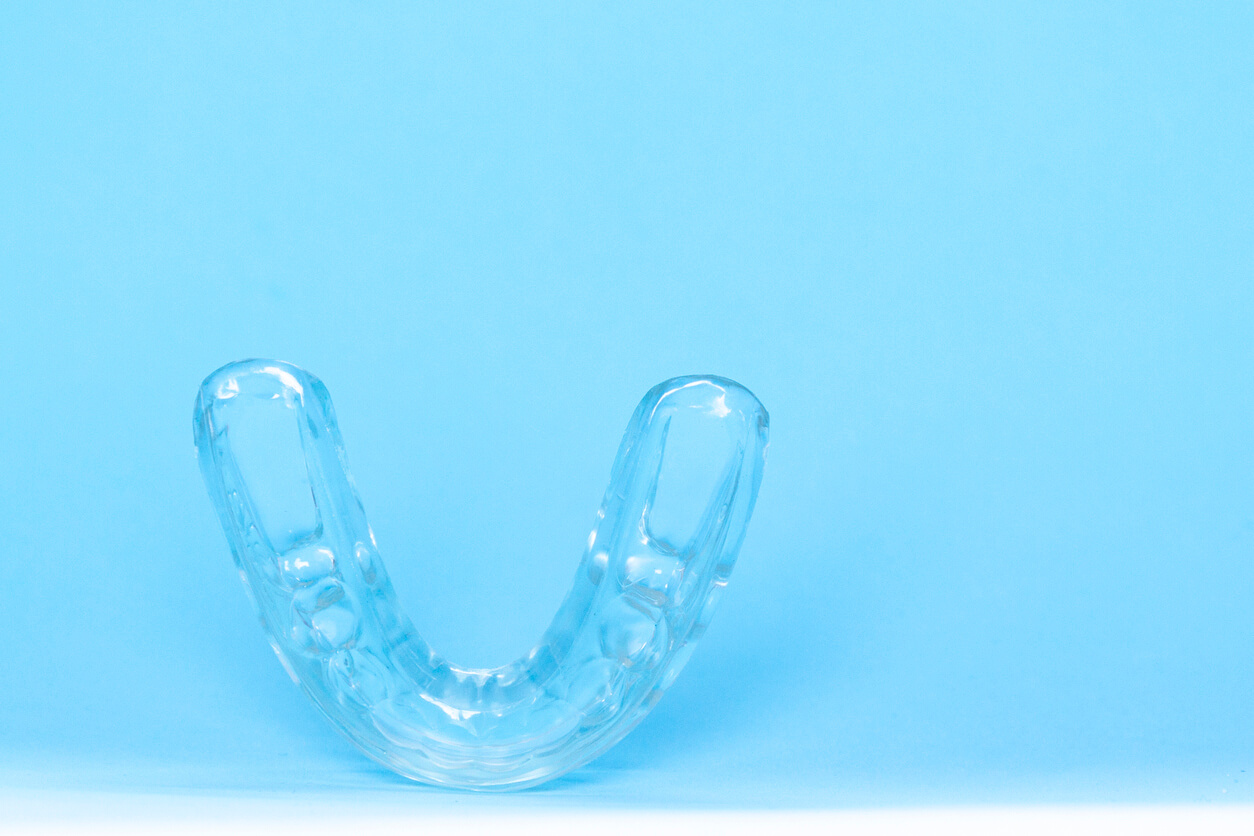If you’ve found yourself on this page, you’re likely wondering if a night guard can help you with your dental concerns. We’ve worked with countless Briarwood and Great Neck patients who have greatly benefited from using a night guard to treat bruxism, or tooth grinding. While a complete dental exam is the best way to determine if a guard is right for you and your mouth’s situation, below are a few indicators that a night guard could help you, too!
You wake up with sore jaw muscles
Nighttime tooth grinding, formally known as “sleep bruxism,” occurs while you are at rest. Although you might not be grinding your teeth consciously, you might wake up with a temple headache, a sore mouth, or even aching teeth. People who grind their teeth at night are also at a higher risk for sleep apnea, snoring, and other sleep struggles. If you sleep with a partner, they might be struggling, too! Bruxism is loud and can keep others awake. A night guard, placed between your teeth, can limit tooth-on-tooth friction, removing pressure from your jaw and providing more peaceful rest.
Your teeth are damaged
While occasional grinding isn’t a huge issue, chronic bruxism can severely damage your teeth. Depending on how long you’ve been dealing with the condition, your teeth may be flattened, fractured, chipped, or loose. This can significantly impact the long-term health of your teeth and require cosmetic intervention and repair. Bruxism can also disrupt your corrected teeth by loosening fillings, crowns, and other interventional techniques. Adding a night guard to your routine can slow down or prevent damage entirely by serving as a roadblock to grinding.
Your bruxism is causing sensitivity
Chronic bruxism can also wear down the enamel that coats your teeth, leaving the deep layers of your mouth unprotected and more exposed to outside factors. Grinding is also tied to tooth pain and sensitivity; that’s not just uncomfortable — it limits what you can eat and drink. If you’ve noticed that your stress levels are going up and your tooth sensitivity is also increasing, bruxism may be to blame, and a night guard can offer helpful protection.
You’re comfortable cleaning a guard and wearing it regularly
If you opt to use a night guard, it’s important that you keep it clean and properly stored while it’s not in use. Thankfully, care isn’t complicated, but you’ll need to rinse it off each morning and occasionally use your toothbrush and standard toothpaste to remove germ buildup. Consistency is also key for treating bruxism, so you’ll need to wear it nightly — not just when you remember. To help get used to your guard, you can set an alarm and store it in a convenient spot, like your nightstand. If you are the caregiver or parent of a person who wears a night guard, you might have to help them remember to insert it each night before bed.
Choosing the right night guard is important for truly addressing bruxism. While it’s possible to buy night guards over the counter in stores, we can customize a night guard specific to your individual bite and concerns by taking an imprint of your teeth and fitting it properly to your mouth. If you’re ready to address your bruxism, fill out the contact form or give us a call at our Great Neck or Briarwood facilities!

